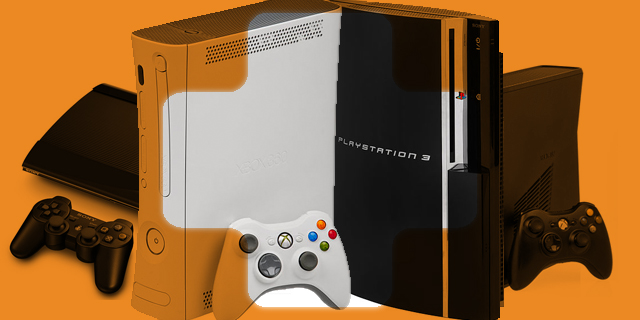
The next generation of video games is here! At least, that’s what I’ve been led to believe. Thanks to the increased relevance of PC gaming, we aren’t making a huge generational shift; this is more of a small leap with two more capable devices. With these new systems now out in the wild, I thought I would take this opportunity to reflect back on the past eight years of PS3 and Xbox 360, my experiences with some memorable titles and what I’ve learned most from the games that, in my mind, defined the generation.
To me, this generation began with the first of many excellent Western RPGs, The Elder Scrolls IV: Oblivion. I played this originally on PC, spending countless hours in Cyrodiil before continuing my adventure on the 360. For many people, this was the introduction to the Elder Scrolls series as well as open-world RPGs as a whole. While it hasn’t aged gracefully, Oblivion was the first of many examples of how to bring a classic franchise to consoles with excellent results. Yes, Morrowind was on the original Xbox, but that game still felt strictly PC to me in its design and approach to open world design. With Oblivion, Bethesda expanded on what the series did well while crafting an experience meant for both console and PC players.
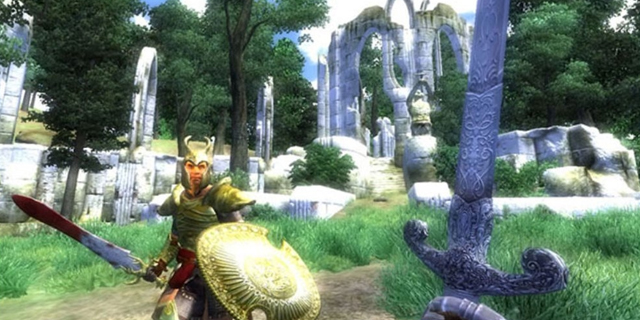
Oblivion is also the first major example of console DLC. Who could forget the horse armor “scandal” of 2006? I tried my best to forget it, anyway. This was the initial exposure many had to what would be an increased DLC focus for many publishers and developers, which led to some abusing this monetization scheme while others used it to create some amazing content.
Since then, the focus has shifted away from DLC and moved to always-controversial microtransactions, there are still instances of DLC-related drama every now and again. Is the anger warranted? Usually not, but this was only the beginning of an ever-growing marketplace outside of purchasing the games themselves. I consider it an excellent way for developers to keep games in our systems long after we finish them, but others tend to view it less positively even today.
I first purchased an Xbox 360 in late 2007 after the Wii had been my primary console for a solid year after its release, making it my first leap into HD gaming. Sure, I lacked an HDTV at the time, but the jump in graphical quality was impressive even with my dinky 19-inch SDTV. The first game I purchased for my brand new console? The original Mass Effect, a game that was my most anticipated release of that year. I’ve always been (and continue to be) a huge fan of BioWare’s work, so to see them focus on an entirely new universe was undeniably exciting.
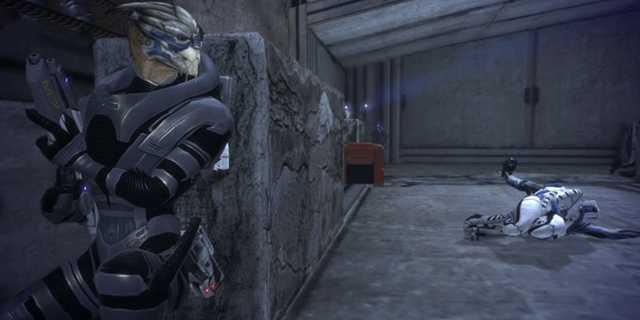
While some still look back on the game fondly, I won’t deny my initial disappointment. I fell in love with the characters and universe, yet found the actual gameplay lacking. I almost had to force myself through it because of how much I disliked the actual act of playing it. Despite my issues with it, I still enjoyed simply interacting with characters and learning everything I could about the game’s many different species and galaxies. It was still impressive at the time regardless of its gameplay flaws.
It wasn’t until Mass Effect 2 (and subsequently Mass Effect 3) where I really fell in love with the series. Seeing how my choices carried over, interacting with an entirely new cast of complex characters, and marveling at the game’s many mechanical improvements turned it into one of my absolute favorites of the generation. This was the series that really brought BioWare to the forefront, for better or worse. Many games before and since have experimented with choice, yet Mass Effect felt like the first time it was successfully implemented in a long-form experience. Because of this, my Commander Shepard is mine and mine alone.
We can’t talk about the last console generation without bringing up the game that almost defined it, at least in my mind: Call of Duty 4: Modern Warfare. I’ll never claim it to be one of the best shooters of the past eight years, but there’s no denying the power of the Call of Duty franchise and how Modern Warfare specifically inspired both the future of the series and the future of the FPS genre as a whole.
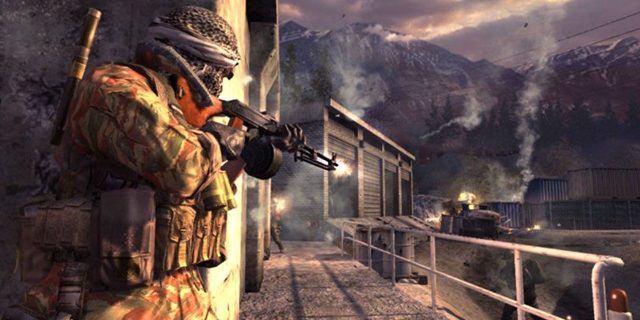
Having said all that, going back to it now, it’s still an excellent, gripping experience that features a surprisingly well-written story and a multiplayer mode that, to this day, is one of the best you’ll see in any game. I won’t deny future games in the series improved upon a lot of what Modern Warfare’s multiplayer did in some brilliant ways, yet they will never be even close to as memorable to me as this game was. The folks at Infinity Ward really came into their own with both this and Modern Warfare 2, and I can’t wait to see what the team, now over at the newly-formed Respawn, does with next year’s Titanfall.
Another developer that knocked it out of the park this generation is Naughty Dog, delivering not one, but two of the best games of the past eight years. The original Uncharted, like the first Mass Effect, was a solid effort that showed a lot of potential. Uncharted 2, on the other hand, managed to surprise just about everyone with its invigorating story and memorable, technically impressive gameplay sequences. I’ll never forget the first time I played through the train sequence, which is easily one of the best slices of a game I’ve ever experienced. It was also the first time a game felt like a “blockbuster” to me, both in terms of its ambitious design and its superb quality.
The follow-up, Uncharted 3, was fine, yet it didn’t even come close to the second game’s quality. I don’t think Naughty Dog dropped the ball so much as it did the best it could after reaching what seemed like its peak, at least with this specific series. Thankfully, it managed to knock it out of the park again with this year’s The Last of Us. A completely different experience from the Hollywood-inspired action of Uncharted, this is a game with real emotional weight behind it. Many titles at this point had hit me hard with some impactful moments, but very few reached the same heights as The Last of Us.
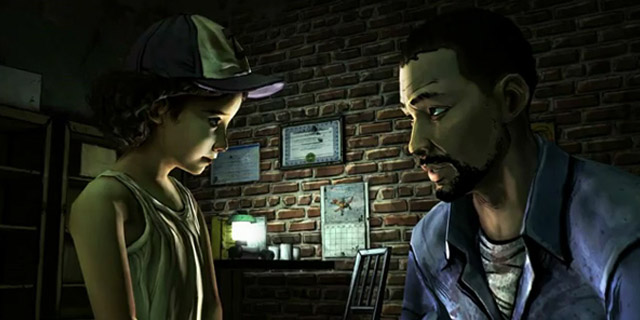
One game that does come to mind, however, is The Walking Dead, the first season of Telltale’s episodic adventure series. Like with Uncharted 2, The Walking Dead took so many people completely by surprise. It experimented with player choice in some different ways than a title like Mass Effect, leading to an experience that still felt impactful while providing the player with a false sense of agency during many of the game’s key moments. During those moments, those key decisions, I still felt like I made a difference even if I might not have at the end of the day. Telltale came into this generation as one developer, but with the success of The Walking Dead, it is a completely different team with a renewed focus.
I would be remiss if I didn’t mention the growth of indie games over the course of the console generation. This is probably the biggest (and arguably best) trend to emerge over the course of these last eight years. To me, it all started with Jonathan Blow’s Braid, a game that started as an XBLA title which soon found new audiences once it came to PSN and Steam. Other games that come to mind immediately include Castle Crashers, Limbo, Bastion and Journey, yet there are countless others you could name. Not only are these titles some of the best the industry has to offer, they also represent the small teams and solo developers that essentially represent our medium’s future.
I was also quickly introduced to many experimental independent releases as a result, three of which come to mind immediately. I’m cheating by bringing up PC-exclusive titles, yet I wouldn’t be surprised if many began to branch out and discover other indie projects outside of the console space because of games like Braid and Limbo like I did. Titles like Dear Esther, Cart Life and this year’s Gone Home showcase a clear understanding of how to push forward the medium in meaningful ways without focusing strictly on worthwhile gameplay experiences, at least in the traditional sense. Here’s hoping we continue to see more of these games in the coming years, both on PC and consoles.
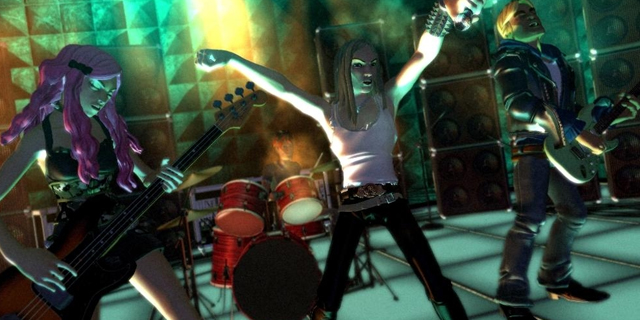
This past generation wasn’t all sunshine and happiness though. To me, a game that almost defined it entirely was Rock Band 2. It’s not the first game in the series nor is it the best, yet I probably spent the most time with it than any other game in recent memory. It, along with Activision’s Guitar Hero series, brought the “plastic instrument genre” to the forefront while also quickly killing it off before our very eyes. It was a swift death, although not an undeserved one considering Activision’s treatment of their once proud franchise. I can’t help but mourn the loss of these once-amazing titles, though, since it provided me with many of my favorite moments of the generation. I don’t even want to begin to think about how much I spent on Rock Band DLC during my extensive time with the series.
There are so many other games I would love to talk about, but I think the point is clear. These past few years have brought us a treasure-trove of memorable games and expanded the medium more so than ever before. If this next console cycle brings us even half the amazing games that these now-last generation systems did, we’re in for one hell of a good time. Looking at what’s ahead for us, even in just the next year or so, I have a very good feeling we’ll have plenty of excellent titles to keep us busy.



















